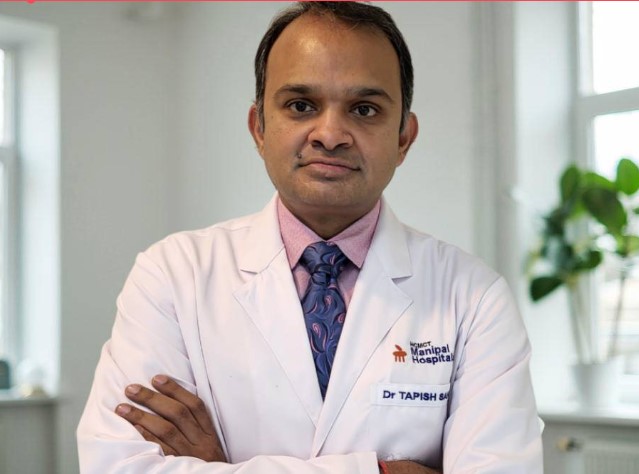Right DVT Specialist Doctor in Delhi
Deep Vein Thrombosis (DVT) is a serious medical condition in which blood clots form in the deep veins—most commonly in the legs. If left untreated, these clots can break free and travel to the lungs, causing a potentially life-threatening pulmonary embolism. For anyone in Delhi who suspects they may have DVT, locating a qualified DVT specialist doctor in Delhi is the first step toward timely diagnosis and life-saving treatment.
What Is DVT and Why Specialist Care Matters
- Understanding DVT: DVT occurs when blood flow slows or becomes turbulent, leading to clot formation. Risk factors include prolonged immobility (e.g., long flights), surgery, pregnancy, certain cancers, and inherited clotting disorders.
- Role of a DVT Specialist: While general practitioners can recognize possible DVT, a DVT specialist doctor in Delhi—typically a vascular surgeon or hematologist with expertise in clotting disorders—offers advanced diagnostic tools (like Doppler ultrasound) and tailored treatment plans (anticoagulation therapy, catheter-directed thrombolysis).
Key Qualities of a Top DVT Specialist Doctor in Delhi
- Board Certification and Training
- Look for credentials in vascular surgery, interventional radiology, or hematology.
- Fellowships or specialized training in thrombotic disorders ensure up-to-date knowledge of cutting-edge therapies.
- Diagnostic Excellence
- On-site Doppler and duplex ultrasound capabilities.
- Access to advanced imaging (MR venography, CT venography) for complex cases.
- Personalized Treatment Plans
- Expertise in anticoagulant management, balancing clot prevention with bleeding risk.
- Minimally invasive clot-removal procedures when indicated.
- Multidisciplinary Collaboration
- Works with cardiologists, pulmonologists, and physiotherapists to manage complications like pulmonary embolism or post-thrombotic syndrome.
- Patient Education and Follow-Up
- Clear guidance on lifestyle modifications (leg elevation, compression stockings).
- Long-term follow-up to monitor for recurrence and manage chronic symptoms.
Why Choose a DVT Specialist Doctor in Delhi?
- Access to Top-Tier Hospitals
- Delhi’s leading healthcare institutions are equipped with state-of-the-art vascular labs and interventional suites.
- Experienced Medical Community
- The city hosts specialists who see high volumes of DVT cases, translating into refined clinical judgment and outcomes.
- Advanced Treatment Options
- From novel oral anticoagulants (NOACs) to catheter-based interventions, Delhi specialists stay abreast of global best practices.
- Comprehensive Vascular Care
- Many DVT specialists in Delhi also manage related conditions such as peripheral arterial disease and varicose veins—ensuring holistic vascular health.
How to Prepare for Your First Consultation
- Medical History Documentation: Bring copies of any recent imaging reports, lab results (e.g., D-dimer levels), and details of past surgeries or family history of clotting disorders.
- List of Medications: Include over-the-counter drugs, supplements, and any history of anticoagulant use.
- Symptom Journal: Note onset, duration, and severity of leg pain, swelling, or redness to help the specialist pinpoint risk factors.
Spotlight: Leading DVT Specialist Doctors in Delhi
While there are numerous qualified practitioners, here’s how to find the right DVT specialist doctor in Delhi:
- Check Credentials Online: Review hospital and personal clinic websites for board certifications and subspecialty training.
- Read Patient Testimonials: Look for feedback on bedside manner, clarity of explanations, and treatment success rates.
- Insurance and Accessibility: Verify that the doctor accepts your insurance network and offers convenient appointment times.
FAQs on DVT and Specialist Care
Q1: When should I see a DVT specialist?
If you experience unexplained leg swelling, persistent pain, warmth, or skin discoloration—especially after surgery or long travel—consult a specialist within 24–48 hours.
Q2: Can DVT recur after treatment?
Yes, recurrence risk is significant. Long-term anticoagulation and lifestyle measures under specialist supervision can reduce risk.
Q3: Are there non-surgical options for DVT?
Most initial treatments are medical (anticoagulants). Surgical or catheter-based clot removal is reserved for extensive clots or when medical therapy fails.
Conclusion & Next Steps
Locating the right DVT specialist doctor in Delhi can be the difference between a swift recovery and serious complications. With the city’s wealth of experienced vascular care providers and advanced treatment centers, you’re well-positioned to receive top-tier care.
Take Action Today
- Compile your medical records and symptom history.
- Research specialists’ credentials and hospital affiliations.
- Schedule a consultation—early intervention saves lives.
Don’t wait: if you suspect DVT, reach out to a qualified DVT specialist doctor in Delhi today and secure the expert care you deserve.





Comments